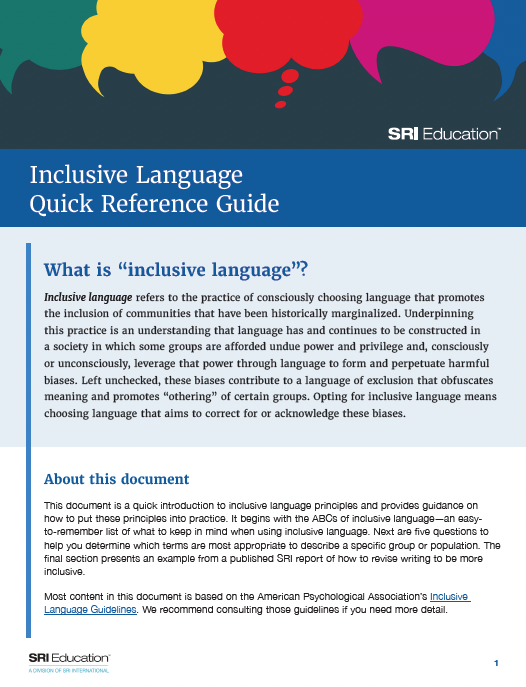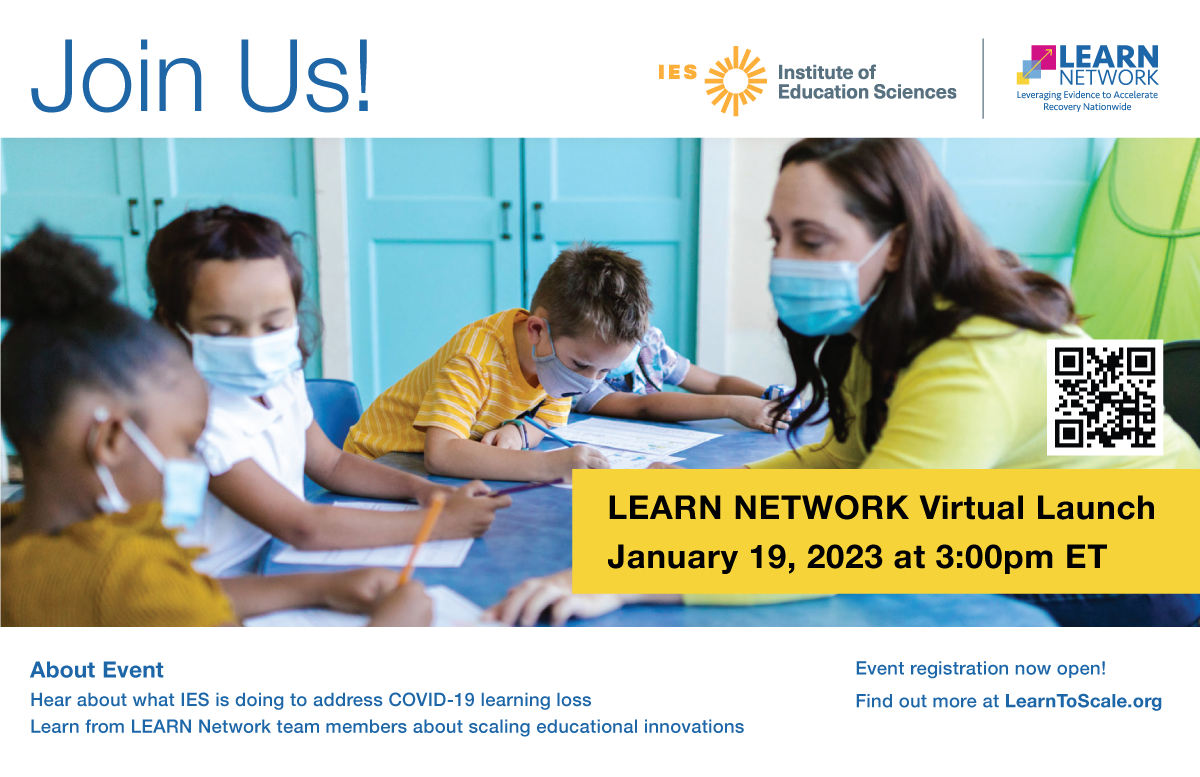This quarter’s newsletter includes a collection of evidence-backed guides and resources designed for school and district leaders, educators, researchers, and other interest holders who work to identify and address the mental health needs of learners at all stages of development, across all settings, and throughout every month the year.
Coordinated eligibility and enrollment (CEE) is an exciting systems-building strategy that can improve family access to early childhood care and education programs. Improved and more equitable access occurs when services are more coordinated, the system is easily navigated, and enrollment processes are transparent. In this three-part video series, SRI Education’s Wei-Bing Chen and Howard Morrison … Continue reading Increasing Family Access and System Coordination Through Coordinated Eligibility and Enrollment (CEE)
We believe in the potential of technologies like artificial intelligence to promote equitable learning opportunities for all students. As the edtech industry continues its rapid growth and evolution, we remain dedicated to partnering with clients to ensure that educational innovations are not just forward-thinking, but also rooted in principles of equity, accessibility, and real-world applicability.
Check out the recordings of our four-part, FREE webinar series from March through June 2023. Each webinar focused on a different topic in early childhood state systems building such as needs assessment and strategic planning, coordinated eligibility and enrollment, engaging partners in planning for data systems, and family engagement.
We recognize the vital role that mental health plays in academic success and social-emotional development of students and well-being of educators. This newsletter describes some of our resources, research, and training that support mental-health awareness and trauma-informed practices in schools and communities.
This quick reference guide is an introduction to inclusive language principles and provides guidance on how to put these principles into practice. Inclusive language refers to the practice of consciously choosing language that promotes the inclusion of communities that have been historically marginalized.
Through our STEM & CS program area, we supports all students to learn concepts and practices they need to engage productively in society as citizens. We have projects focusing on curriculum design, assessment design, design of teacher supports, learning sciences research, multidisciplinary STEM and computing (STEM+C) integration, impact studies, and external evaluation of domestic and international STEM & CS projects and district-wide STEM & CS initiatives.
Back in 2019, we had an idea to create the Student Behavior Blog as a way to disseminate our work and initiate discussions with our community about issues they face in supporting students’ well-being. Our Behavior Research Team swung into action to make that dream a reality—and the response has been incredible. Our team not only engaged with educators, community members, and mental health service providers to co-author blogs about their challenges and accomplishments on the ground, but we also compiled helpful resources from our colleagues to promote collective work in the field and across the country.















